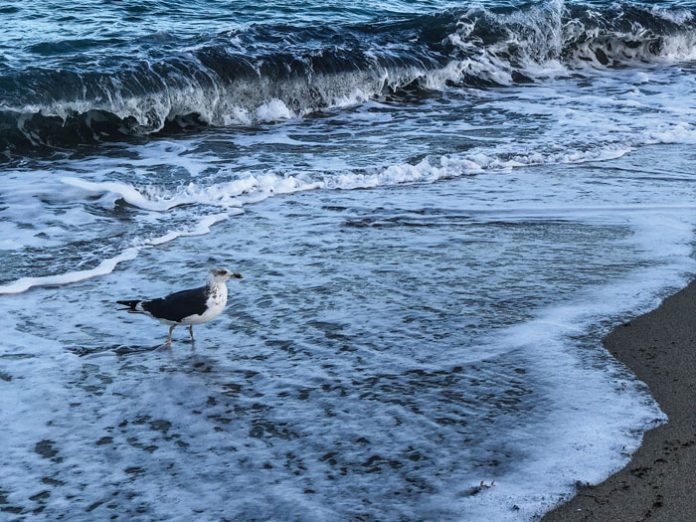It was a winter Motzaei Shabbos, but the weather was relatively balmy, as it usually is in North Miami Beach. Though I’m a zeide many times over, I have a soft spot for the father-son learning program in my local shul, and I love the special learning session with my grandson, J.J.
During the week I run a busy medical practice, and I learn the daf every day. But weekends are dedicated to intensive learning. The first time my son, Yermi, asked if I wanted to join him at the Avos Ubanim and learn with his seven-year-old son, Yitzchok Yehoshua, known as J.J., I jumped at the opportunity. The shul was full of fathers, sons and quite a few grandfathers who came to learn and spend quality time with their children. J.J. is an adorable and well-behaved boy. It was a pleasure to learn with him.
Towards the end of our precious learning time, I happened to glance behind me and saw a sight that I will never forget. A man who appeared to be in his 40s was sitting in a wheelchair, completely immobile, his face shining with a special radiance, his features wreathed in a serene smile. Next to him sat a sweet young boy, and they were learning together. Actually, the boy was learning out loud, and his father was following every word.
It was obvious that the father suffered from a serious condition and was unable to move his limbs. Just as obvious were the bonds of affection shared between father and son. The young boy, who appeared to be about 12 years old, was arguing a point in the Gemara as his father listened intently.
The moment was too powerful for words, too poignant for me to describe. I felt like an intruder in this special time and I quickly turned away to give them their privacy. For the rest of that week I couldn’t get the image of the father and son out of my mind.
The following Shabbos afternoon, as I was walking home from shul with my wife and children, I met Rav Ephraim Eliyohu Shapiro, a distinguished rav in our community, who was walking home from shul with his rebbetzin. Next to Rabbi Shapiro, in his wheelchair, was the same man I had seen at Avos Ubanim the week before. Near him was a woman, who I assumed was his wife, and the same angelic boy.
“Gut Shabbos,” Rabbi Shapiro called, motioning for me to come closer. I have the privilege of knowing the rav for many years, and our families share a special connection. “I want to introduce you to my friends,” he said, gesturing to the man I had seen the week before at Avos Ubanim. “This is Rabbi and Rebbetzin Klein, and their youngest son, Shimon” (names have been changed). Pointing to me, he said, “And this is Dr. Michael Paritzky.”
I was surprised, as Rabbi Shapiro usually called me Mikey, due to the close bond we shared. This time, for some inexplicable reason, he referred to me as Dr. Paritzky. That was the first piece of the miracle, though at the time I had no idea of what was to unfold.
We spoke for a few moments, and I learned that the Kleins were in Miami for medical treatments, as Rabbi Klein suffered from a serious, degenerative condition. I was contemplating mentioning the Avos Ubanim scene, but I wasn’t sure if it was the right time or place. We wished each other well and went our separate ways.
That Motzaei Shabbos, my son asked me once again if I wanted to accompany him and J.J. to the Avos Ubanim. Of course I agreed. I was still under the spell of the memorable experience I had the week before. When I got to the shul I was gratified to see that Rabbi Klein occupied a seat in the back, in his wheelchair, once again attended by his son.
After the learning program was over, the organizers raffled off valuable prizes. One of the prizes was especially exciting—a life-sized stuffed teddy bear that was bigger than some of the children. To my surprise, Shimon was called up to receive the teddy bear.
“Hey, Shimon,” I said to the young man, whose pure blue eyes radiated inner joy and a maturity that belied his age. “I can’t believe that you got the bear, the very best prize. I wanted that bear! It’s not fair,” I kibitzed.
In response, he gave me a heartwarming smile. His father was smiling as Shimon showed off his grand prize. I wanted to capture a picture of father and son sitting together, their faces aglow, but I hesitated to interfere. Then I noticed another young man, in his early 20s, who sat right next to them and resembled the two. Sensing what I wanted, Rabbi Klein’s older son introduced himself, smiled and reassured me that it was okay if I wanted to take a picture. “Look, my father is smiling at you,“ he said. “He wants you to take a picture of him!”





















